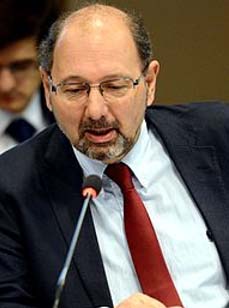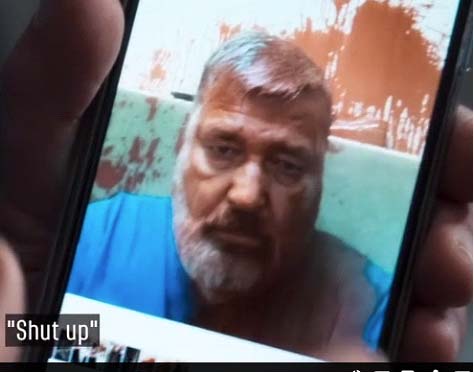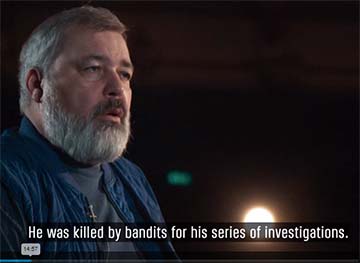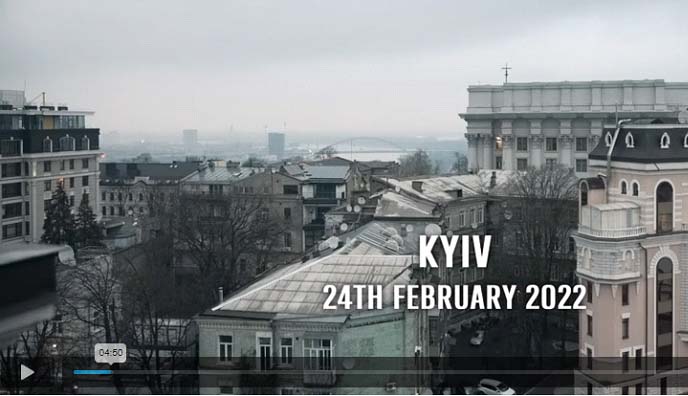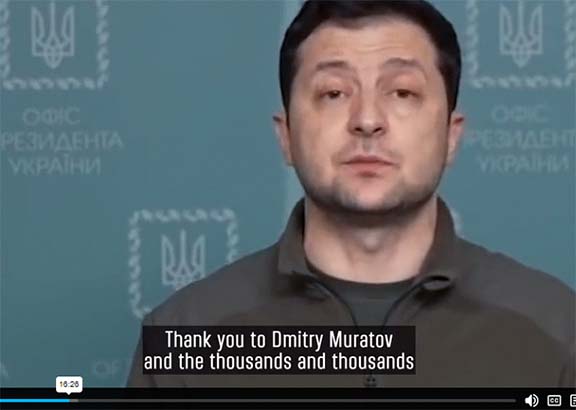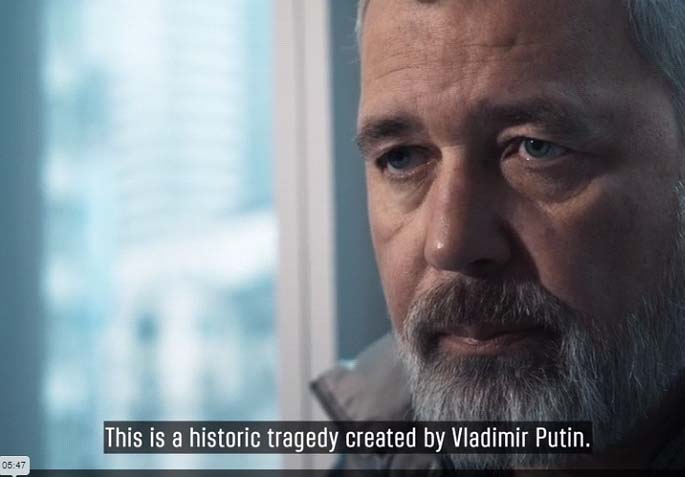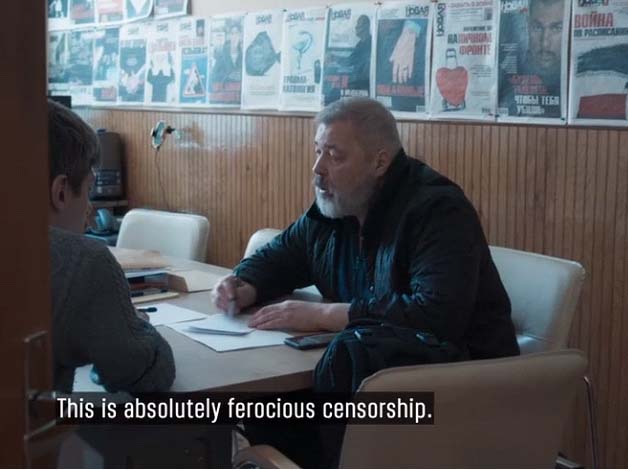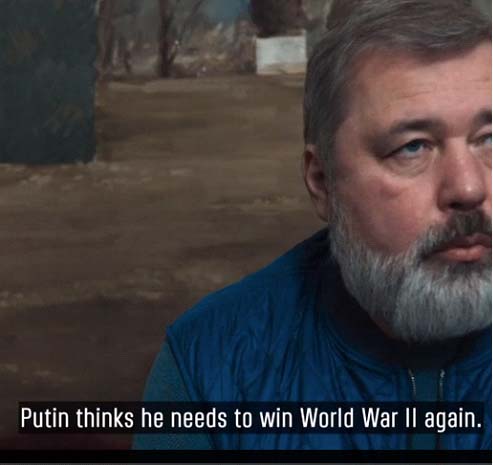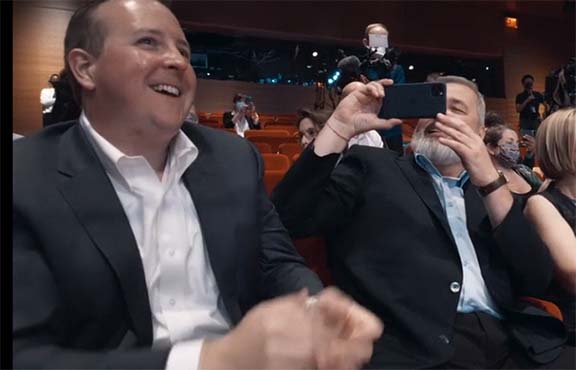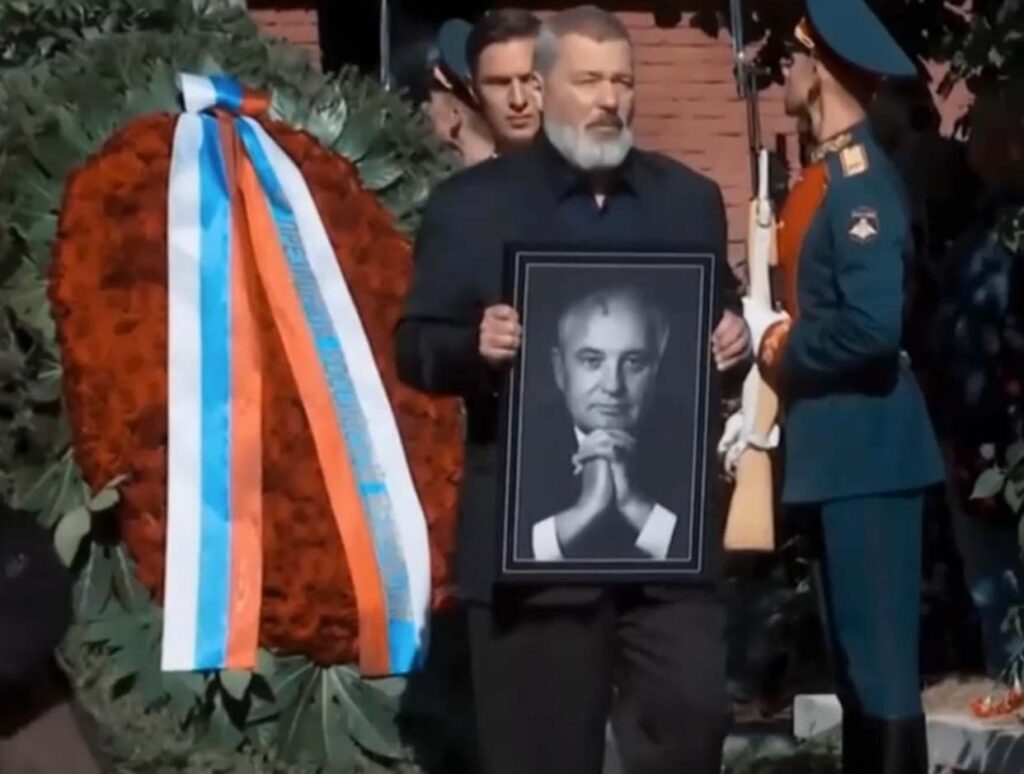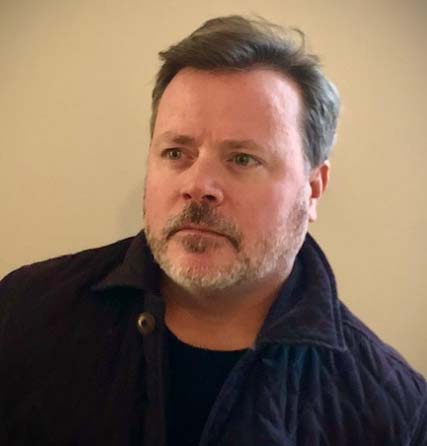By Lucy Komisar
I visited Russia twice, before and after the collapse of Communism and even attempted to learn Russian, not getting much beyond waiter and taxi talk, though I can pick up film and political speakers with the help of subtitles. So as an investigative reporter, not a film critic, to understand this film about a Russian editor who won a Nobel Prize, I sent a screening of the film to world-class Russia expert, Richard Sakwa. He is Emeritus Professor of Russian and European politics at the University of Kent (England). He was also the head of the University’s Politics and International Relations department, has lived and taught in Russia and has published sixteen books on Soviet, Russian and post-communist affairs.
Sakwa wrote me that he had supported the Nobel Prize award to Dimitry Muratov. So, I thought he might have a positive view of the film. But, after viewing it, he said: “I watched the film over the weekend. It seems to me rather weak, although interesting. There was no attempt at a critical evaluation of Muratov’s work and the type of journalism that Novaya Gazeta purveyed, and instead presented a portrait of Muratov, with the warts removed. For me personally, it was moving in a way – but all sorts of comments and assessments passed unchallenged. In short, it was part of the growing category of propagandistic films about Russia. It made no contribution to critical analysis, and thus firmly falls into the category of Cold War II documentaries.”
It was a good start to analyze this documentary: truth or propaganda? It was presented at the Double Exposure Film Festival in Washington in November. It is by the British director Patrick Forbes.
Key points: Muratov never speaks about or shows what Novaya Gazeta published nor does director Forbes. So, here’s an editor whose paper is shut down, who fears for his life and those of his reporters, but you never ever get a hint of what that paper runs.
So, to the film. Lots of things happen, all blamed on the Russian government. Evidence is not provided.
Somebody throws paint on him. The message he says is: “Shut Up.” Nothing said about what he wrote.
He gets a 2021 Nobel Peace Prize along with another U.S. government favorite, Philippines editor Maria Reesa. The Nobel committee’s failure to include Julian Assange, the most important journalist political prisoner in the world, indicates that its decision was pro-U.S. political.
He says 100 journalists have been labeled foreign agents, though no details or examples are given. The narrator says six Novaya journalists were killed after reports offended Kremlin. In one case, criminals were apparently the perpetrators. But he provides no other details.
He says 262 media outlets have been closed. Indeed, papers have been closed and reporters charged. One the film listed as jailed is Vladimir Kara-Murza, “Washington Post” columnist, earlier labeled in the film as a “political activist.” Calling him a columnist is disingenuous, as he is a collaborator of Mikhail Khodorkovsky, who became a billionaire through the corrupt “loans for shares” deals of Boris Yeltsin and uses that money to finance opposition to the Russian government.
Muratav says, “Some do whatever they want, others are forced to do what they say, like [Alexei] Navalny.” The video shows a sad Navalny behind bars. Muratov adds, “I’m not a political supporter of Navalny.” He doesn’t explain why. It could be due to Navalny’s racist views, which Navalny has not repudiated. See this about Navalny.
Muratov says that writers have been sent funeral wreaths, the paper’s CEO’s country house gates were daubed with swastikas. When the paper was shut down, Muratov started a magazine to run the same articles. And a Youtube channel to run the interviews he couldn’t run. The Novaya website would be blocked in Russia.
What is missing from the film is any indication of what those articles or interviews said other than the implication that the government wouldn’t like them.
That segues an attack on Russia for its troop movement into the breakaway areas of the Donbass in 2022.
The film runs a Putin video explaining this is reaction to years of Ukrainian killings of Russians in Donetsk and Lugansk. In fact, in the eight years after 2014, when rightist forces supported by the U.S. overthrew an elected government deemed favorable to Russia, and before the Russians sent troops to protect them, 14,000 civilians in the Russian-speaking Donbass were killed by Ukrainian bombings. That is not denied, just ignored. Muratov is lauded by Ukrainian President Zelensky.
And Muratov says Putin created the war.
No one contradicts that lie. In fact, it was created by NATO expansion, as affirmed by U.S. experts including acclaimed diplomat George Kennan, former Ambassador to Russia Jack Matlock, and University of Chicago Professor Emeritus John Mearsheimer,
Muratov complains about the censorship his paper suffers. He does not say what articles were suppressed or how.
Then he says that Putin thinks he needs to win World War II again. What does he mean, defeat the Germans? Or maybe it’s an unintended reference to powerful neo-Nazi forces in Ukraine who revere the WWII Nazi leader Stepan Bandera. The Banderite forces in Ukraine – the Azovs — believed to be a fourth of the military, have swastika tattoos and uniform patches.
A highlight for the film director is the New York auction that sold Muratov’s Nobel Prize for $103 million to an anonymous donor.
His speech: “There are 60 million Ukrainian refugees.” The video shows refugees trudging through the snow.
His comments reach the absurd. He declares, “Putin lives in the past, Putin lives in the clouds.” He thinks Putin believes death is good if it means dying for the Motherland. He attacks “the elite” of Russia for not opposing Putin on the war in Ukraine. Says they are scared. Yet the polls show the masses of Russians support Putin, and some in the Duma and military would be tougher. No reference to that.
He says police caught but released people who threw red paint at him. He is not stopped from marching prominently in the state funeral procession for Mikhail Gorbachev.
Director Forbes, displaying his Russophobia, draws a line connecting the Russian state’s “brute forces to buttress its rule…from Czarist massacres of the peasantry, show trials of the 30s, or the gulags of Soviet rule.” Queue photo of Stalin. Would he discuss police violence in U.S. cities by starting with the genocide of the native Americans beginning in the 1600s?
There may be serious human rights violations against journalists in Russia, but this film is short on evidence. It would have been useful to cut some of Muratov’s travels (he is shown arriving and departing Riga, Paris, New York), at social gatherings with supporters and other colorful filler and instead to tell at least a few of the stories of people listed as jailed or killed. Or the news articles the Russian authorities didn’t like and caused them to shut down media. Here is a list of jailed reporters that ends the film. I would have liked to know what any of them had written, what the charges and defenses were.

The last name, Vladimir Kara-Murza, is a collaborator of Mikhail Khodorkovsky, so calling him a “Washington Post” columnist is dissembling.
This film is not journalism. Details are avoided. Proofs are not demanded. Other views are not sought. The director-narrator even mispronounces the paper as NovAYa, when it is NOVaya (Novaya Gazeta, new paper.)
I sent the film to American Russia expert James Carden, who served as an adviser on Russia policy at the U.S. State Department. He called Muratov brave and sincere, but said, “The film’s central weakness is that it provides virtually zero historical context for the war in Ukraine.”
He added, “In the U.S. there is a misperception, thanks in part to movies like these, that Russian liberalism is actually popular in Russia and that in the absence of Putin, Russia would be different: liberal, western, pro-American. Of course, there is zero evidence for this, but this is the mythology writers and filmmakers like those behind The Price of Truth wish to portray. The idea that Muratov and his paper represent some kind of lost idyll of liberal Western Russia is far-fetched.”
Conclusion, “The Price of Truth” fits into the tradition of deceptive U.S. propaganda films that target the enemies of Washington’s foreign policy elite.
Please note, this is the third fake anti-Russia or anti-China documentary in the past few years. Big times for propaganda. Terrible times for truth-telling.


